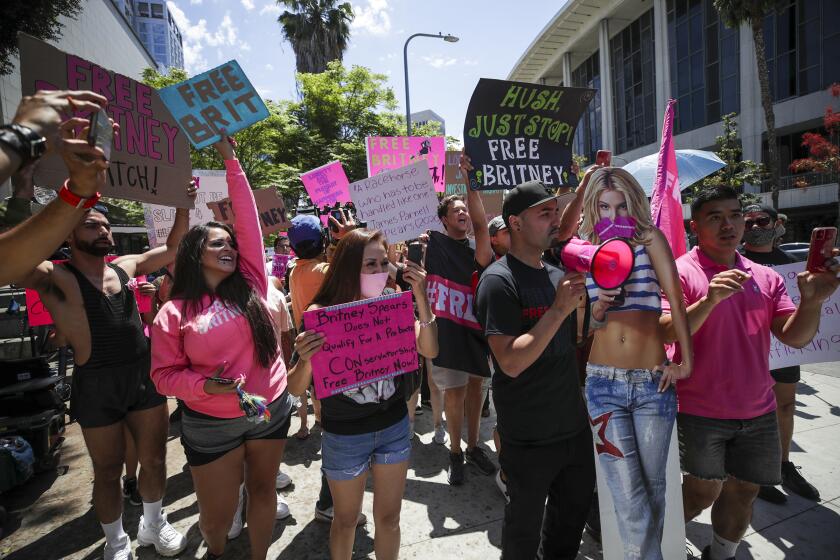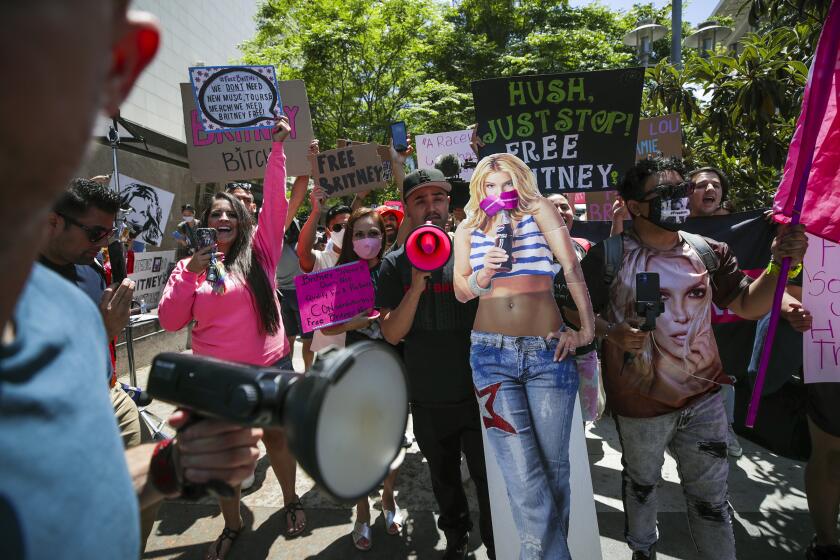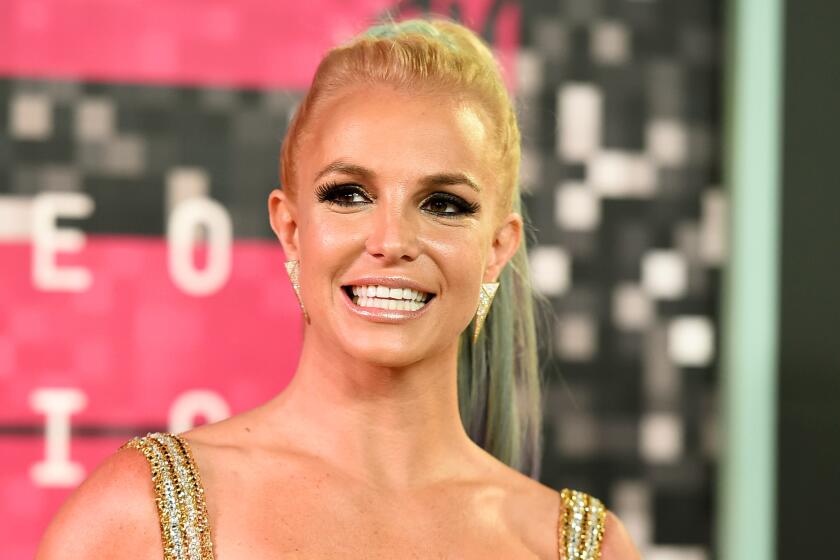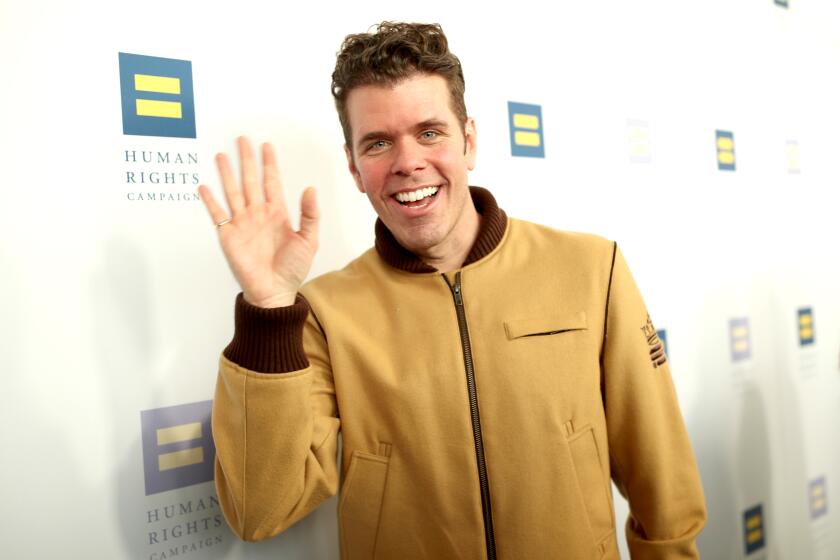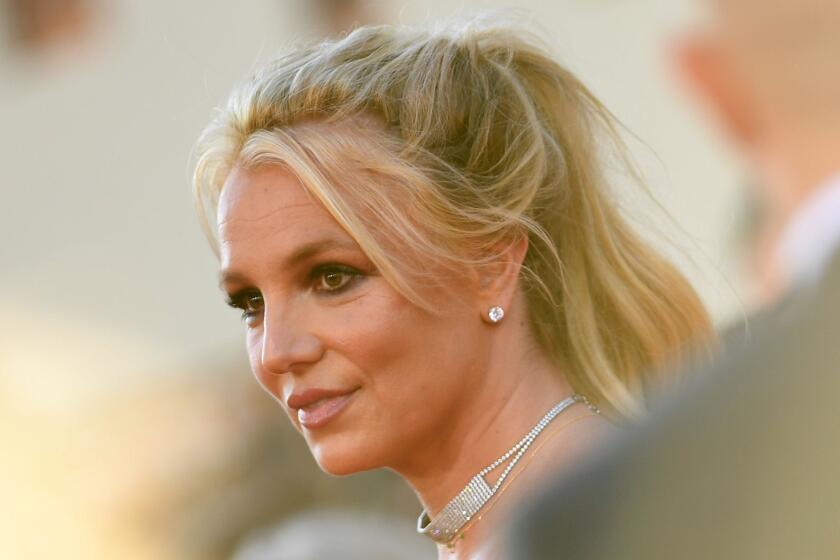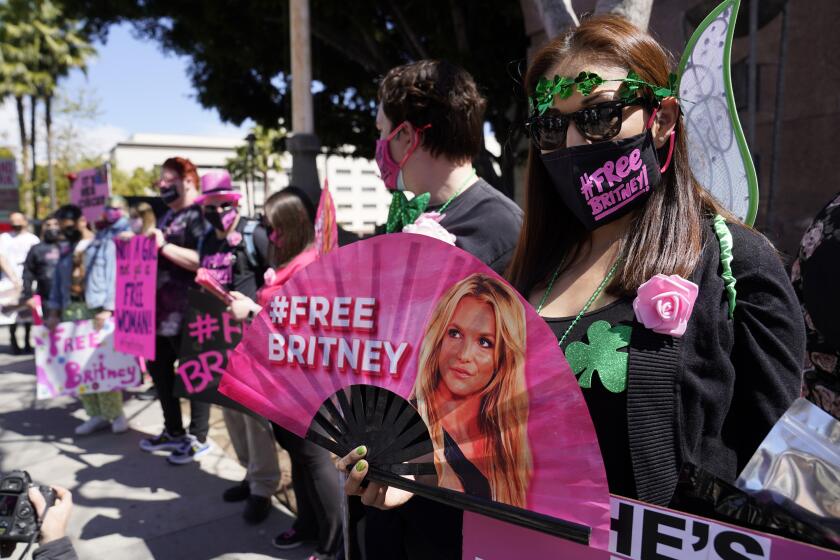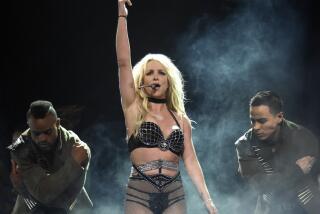Britney Spears says conservatorship won’t let her remove her IUD. Is that even legal?
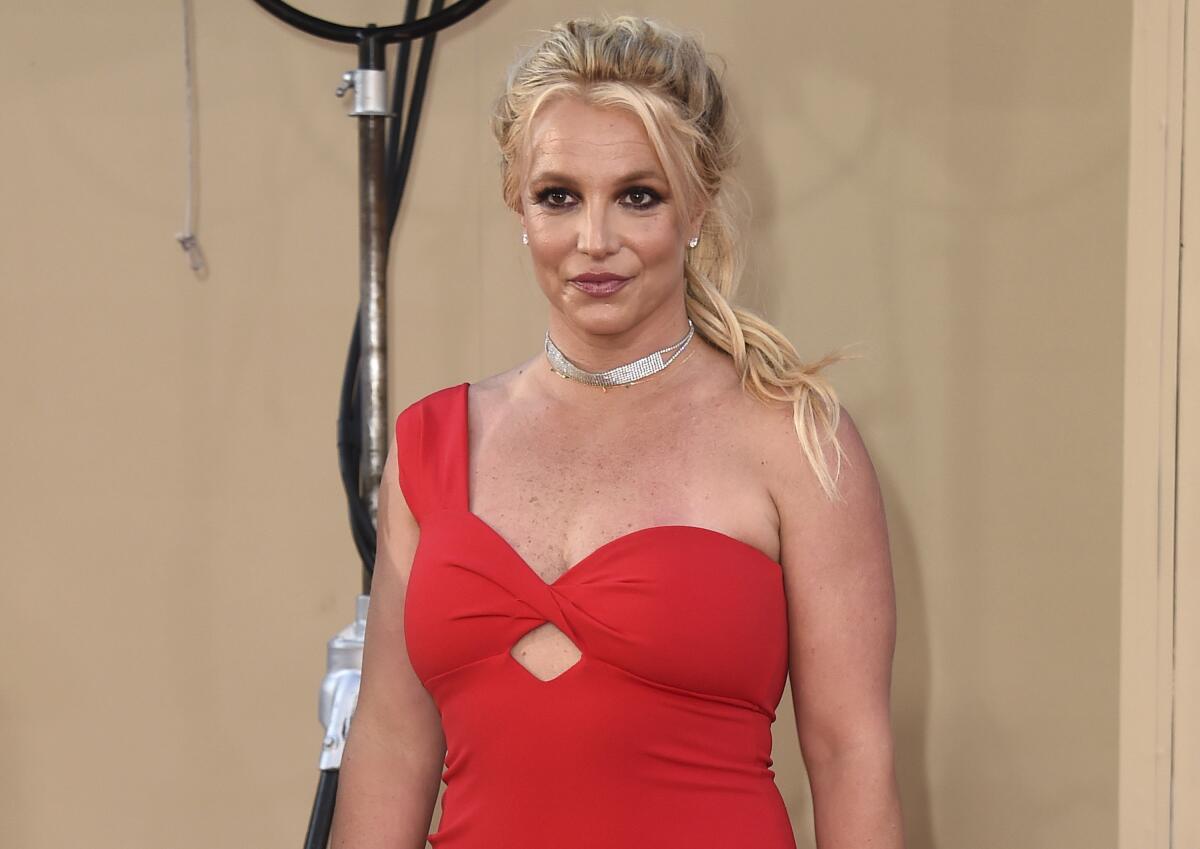
- Share via
Pop musician Britney Spears leveled several disturbing allegations this week while speaking to a Los Angeles court about her controversial 13-year conservatorship.
Appealing to a judge Wednesday, the “Toxic” singer claimed that her father and other key players involved in what she called an “abusive” conservatorship have forced her to work nonstop, take medication that left her incapacitated, give copious amounts of blood and submit to excessive psychological evaluation. She said they’ve rendered her “angry,” “depressed” and “traumatized.”
At the end of her passionate, 24-minute speech, Spears dropped a final bombshell of an accusation: Her “so-called team” refused to let her remove the intrauterine contraceptive device (IUD) implanted inside her, preventing her from having more children.
Addressing the court for the first time in two years, pop star Britney Spears was candid and emotional at her conservatorship hearing Wednesday.
“I was told ... I’m not able to get married or have a baby,” said Spears, who shares two teenage boys with ex-husband Kevin Federline and is currently dating personal trainer Sam Asghari.
“I wanted to take the IUD out, so I could start trying to have another baby, but ... they don’t want me to have ... any more children. So basically, this conservatorship is doing me way more harm than good. I deserve to have a life.”
In particular, Spears’ closing allegation has stirred fervent conversations about reproductive justice and left many people wondering: Is that even legal?
In response to Spears’ rousing remarks, Jodi Hicks, president and CEO of Planned Parenthood Affiliates of California, called the pop icon’s account of forced contraception “extremely troubling.”
Britney Spears finally spoke out about her conservatorship, but what’s next? ‘Once the system gets ahold of you, it is hard to get out,’ an attorney says.
“Planned Parenthood supports her right and the right of all individuals to make informed choices about their sexual and reproductive health, including whether and when to have children, free from coercion and exploitation,” Hicks said in a statement to the Los Angeles Times.
“Given what we’ve seen in this case, the state must do better to ensure that stronger protections are in place with regard to reproductive decision-making for individuals subject to conservatorship.”
Additionally, The Times spoke Friday with Khiara M. Bridges, a law professor and faculty director of the Center on Reproductive Rights and Justice at UC Berkeley, about the legal implications of Spears’ testimony and how it connects to a larger history of reproductive-rights violations.
The following conversation has been edited for length and clarity.
Britney Spears has been under a conservatorship since 2008. Before her virtual appearance at a court hearing today, here’s a deep dive into her case.
What was your initial reaction to Spears’ testimony?
Bridges: It was outrageous. It recalled, for me, the long history of the denial of decision-making around reproductive matters that marginalized people — women, poor women, white women without class privilege, people of color, disabled people, incarcerated people — there’s a long history of denying those marginalized people the ability to make decisions around their bodies, their reproduction.
Do Spears’ conservators have a legal right to limit her reproductive choices to that degree?
My understanding is that conservators have the ability to direct financial and medical decisions of the person under the conservatorship. And so, in order for this to be legal, her conservators would have to make a claim that controlling her reproduction impacts her financial well-being, or it’s a medical decision. And I think they could make those arguments, but it still seems like an incredible overreach of the decision-making power that they have as conservators of her estate.
Gossip blogger Perez Hilton publicly apologized to Britney Spears after the pop star’s powerful testimony at her conservatorship hearing Wednesday.
How is Spears’ case emblematic of other reproductive-rights violations historically experienced by disabled people and other marginalized groups?
When a lot of people think about reproductive rights, they think about the right to an abortion and the ability to not have a child. But what the reproductive justice framework encourages us to do is to think about those who think beyond the right not to have a child and to think about the right to have a child — and then also the right to parent one’s child with dignity.
Marginalized communities have most been affected by the denial of the right to have a child. A lot of people speak about history, but the history of denying disabled people the ability to have a child is not in this long-ago past. It’s a present that’s happening right now. People with disabilities are frequently denied the ability to become parents. The coerced either sterilization or forcing people with disabilities to take contraception continues to the present.
Britney Spears’ case is getting a lot of attention because she’s a celebrity. She’s wealthy. People are interested in her life. But the power dynamics that she’s describing, wherein third parties are telling her that she cannot have a child because she is disabled or because someone has deemed her not worthy of reproduction, that’s a story that marginalized populations can tell today.
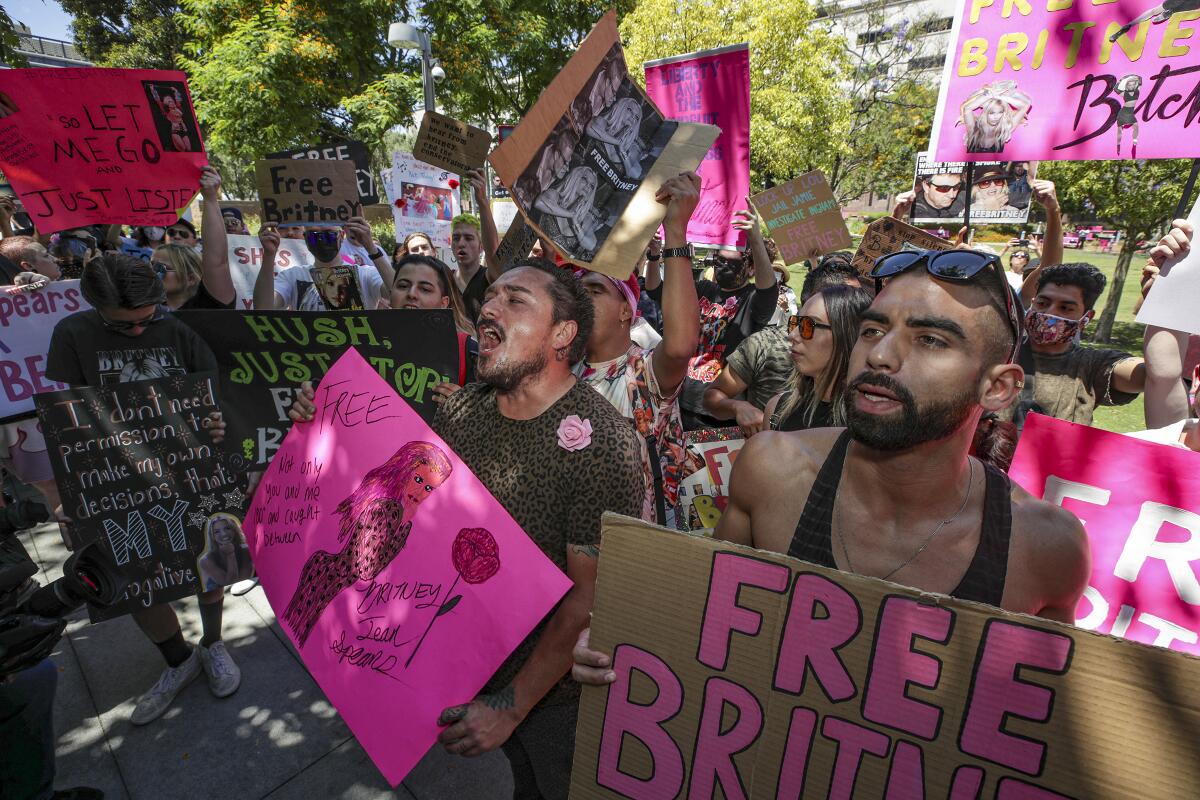
What power could a highly publicized case like this have to influence future policy?
The next time allegations surface that ICE detention centers are coercively sterilizing people without informed consent, I hope that [people] are as outraged as they are about Britney Spears’ situation. The next time that allegations surface that prisons in California or the next state have been sterilizing folks without informed consent.
I hope that outrage would be shared with those other folks who don’t have the platform that Britney Spears has. With regard to conservatorships, I just hope that judges would take a more shrewd eye to policing the limits of the powers of conservators over those who are under their care.
After more than a decade, why is Britney Spears still under a court-approved conservatorship, which leaves decisions involving her estate and everyday life to others?
What steps can people take to enact change for those who feel their reproductive rights have been violated?
Everybody should vote. It’s no secret that we’re facing a very conservative Supreme Court, in which it seems likely that the constitutional right to not have a child will either be limited dramatically or overturned entirely.
That will leave it to states to protect people’s access to their ability not to have a child — but also the ability to have a child. So, simply put, just vote. Because if we don’t vote, then it will allow folks who have no empathy to direct the courses that people want to take when it comes to reproduction.
How is Spears’ case linked to state-imposed limitations on individuals’ reproductive freedom?
They’re very connected in the sense that the reason that Britney Spears is being subjected to the conservatorship, full stop, is because she has a disability of some sort. In her case, there’s a private actor who is controlling her reproductive decisions because of her disability.
In many other cases that we might talk about, it’s a state actor — or other private actors — who are controlling people’s reproductive decisions because of their disabilities. So these are apt comparisons. It’s not comparing apples and oranges at all. It’s about constraining people’s reproductive decision-making on account of their disabilities.
Britney Spears has been a media and pop culture object of derision, pity and indifference to her humanity. On Wednesday, she stood up for herself.
What would it take for laws surrounding reproductive rights under conservatorships to change?
I am a big proponent of cultural change ... as an engine of legal change. In order for the laws to change and to protect the reproductive rights of people with disabilities, we have to have a cultural shift around thought around people with disabilities.
I think right now, people have very little empathy for people with disabilities — but also the precise context of people with disabilities who would like to reproduce. I don’t think that, as a country, we particularly value the reproduction of folks with disabilities, as well as other marginalized folks. We need to see a shift in how we think about people with disabilities in order to have a legal shift around protecting the rights of people with disabilities to have children when they want and to parent the children that they have.
More to Read
The biggest entertainment stories
Get our big stories about Hollywood, film, television, music, arts, culture and more right in your inbox as soon as they publish.
You may occasionally receive promotional content from the Los Angeles Times.
